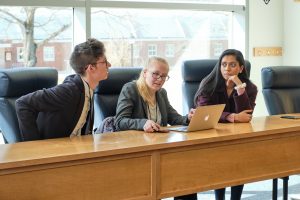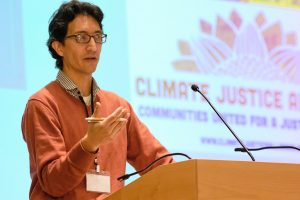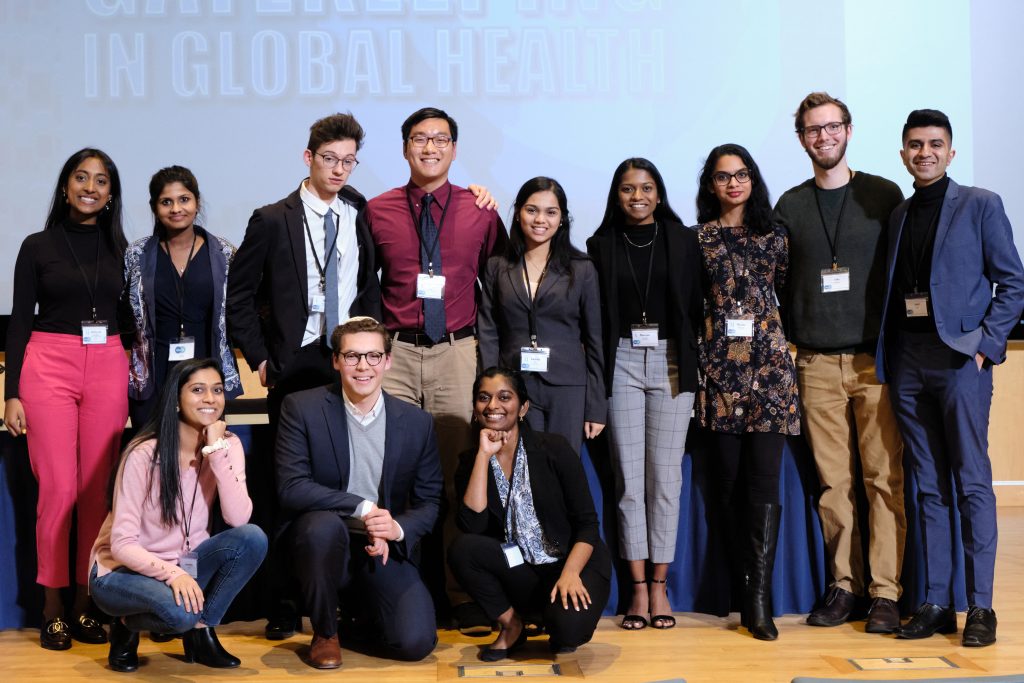Gatekeeping in Global Health
A Student Organized Global Health Symposium on Health Disparities
Written by Sahil Laul, Multimedia Project Specialist
April 1, 2020
Amidst a global pandemic, it is difficult to remember a time when we were not all thinking about global health issues. For Global Health Spaces on Campus (GloHSOC), the need to build enduring proactive, community-centered health care systems have always been at the forefront long before we arrived at our current state.
GloHSOC hosted its third annual global health symposium “VIP Access: Gatekeeping in Global Health,” which explored how political, environmental, and socioeconomic disparities impact access to quality and affordable care within the United States and across the globe.
Attendees were immersed in a simulation which placed them in the shoes of patients through real case studies. Participants were given an engraved ‘access key’ at the beginning of the day that corresponded to what simulation they would enter and what case they would experience. Each situation highlighted barriers to care different populations experience every day and included cases on accessibility for transgender, uninsured, chronic conditions, and deaf and hard of hearing communities.
 After two symposiums GloHSOC rebranded in 2019 from the Global Health Symposium Organizing Committee in order to better carry out the vision set by its founding members; an intrinsic responsibility to break down the structural barriers that limit the well-being of communities domestically and abroad. This past fall the team hosted its first annual hackathon GloHack that focused on the topic of environmental change and sustainability to demonstrate the importance of conversations on health in innovation. The organization expanded with a partnership between UConn Storrs, UConn Health, and Connecticut Children’s Medical Center to host a series of three global health symposiums all with a focus on access.
After two symposiums GloHSOC rebranded in 2019 from the Global Health Symposium Organizing Committee in order to better carry out the vision set by its founding members; an intrinsic responsibility to break down the structural barriers that limit the well-being of communities domestically and abroad. This past fall the team hosted its first annual hackathon GloHack that focused on the topic of environmental change and sustainability to demonstrate the importance of conversations on health in innovation. The organization expanded with a partnership between UConn Storrs, UConn Health, and Connecticut Children’s Medical Center to host a series of three global health symposiums all with a focus on access.
The symposium triad began the evening of Friday, March 6 with a keynote address at the Thomas J. Dodd Research Center by Rachel Bridges, Global Health Communications Manager for the UN Foundation. There was a clear sense of urgency for the audience and speaker who understood we were on the brink of a global pandemic.
Bridges emphasized that it was still too early to predict the course of the virus in the United States at the time but noted that there had been many warnings and projections of a pandemic of this nature.
“If you talk to epidemiology and global health experts, they are not surprised by the state we are in today,” said Bridges, citing examples such as the Spanish Flu, SARS, H1N1, and Ebola as evidence for current and future pandemics.
Bridges stressed that we must be weary of the “cycle from complacency to panic.” She emphasized the need to learn from the current crisis and focus on building resilient health systems that are tailored to community needs in order to prevent future pandemics.
César E. Abadía-Barrero, Director of Undergraduate Programs in Human Rights and Assistant Professor of Anthropology & Human Rights at the University of Connecticut, echoed a similar message with his keynote lecture on the morning of Saturday, March 7th. He focused on how we define access to health care globally and inherent contradictions that exist in health systems around the world.
Abadía-Barrero highlighted the medical-industrial complex as one of the largest barriers to care in the U.S., emphasizing that health is a for-profit industry that is driven by insurance companies and the pharmaceutical industry. The two major players have opposing interests — insurance companies who encourage less treatment and pharmaceutical companies who encourage more treatment — that result in a higher overall cost of health care and larger barriers to access for consumers.
 Abadía-Barrero also explained the flaws of universal health coverage, citing the arguments of health activist groups in some Latin American nations that say universal health coverage is not the same as universal health care since coverage allows for the privatization of health care and medicine. Community-based alternatives to the medical industry are necessary in the global health landscape. He concluded by announcing UConn’s new Anthropology of Global Health minor that integrates anthropological analysis into the study of global health problems and solutions.
Abadía-Barrero also explained the flaws of universal health coverage, citing the arguments of health activist groups in some Latin American nations that say universal health coverage is not the same as universal health care since coverage allows for the privatization of health care and medicine. Community-based alternatives to the medical industry are necessary in the global health landscape. He concluded by announcing UConn’s new Anthropology of Global Health minor that integrates anthropological analysis into the study of global health problems and solutions.
A panel of expert international health physicians spoke on medical care in low resourced areas. Each panelist briefly discussed their work in foreign health settings but they all highlighted that global health doesn’t always occur across an ocean, rather here in the nation.
“All health is global just like all politics is local,” one panelist said, noting clear barriers to health including low insurance coverage and limited access to affordable and nutritious food in urban and low-income settings within Connecticut.
The panel offered insights into the disproportionate effects COVID-19 would have as it ran its course and accurately predicted the virus’s burden on low resourced areas that consist of largely black and brown populations.
The main sessions provided the participants with a snapshot of the international health landscape and introduced the idea of gatekeeping in global health. The rest of the symposium contextualized the issues in specific health settings and engaged attendees in critical conversations through the access simulation and breakout sessions.
The breakout sessions covered topics including activism and advocacy, mental health, and the business of healthcare. Each session focused on equipping participants with the tools needed to take charge of their own health as well as that of their communities by providing actionable steps for change.
Throughout the two-day symposium each speaker gave a similar message — we must restructure our health systems to address community needs and remove barriers that restrict access to care.
Note: The symposium triad was set to host events at UConn Health on March 26th and Connecticut Children’s Medical Center on March 27th but were cancelled due to COVID-19 social distancing regulations and will likely be rescheduled once the regulations are lifted.
